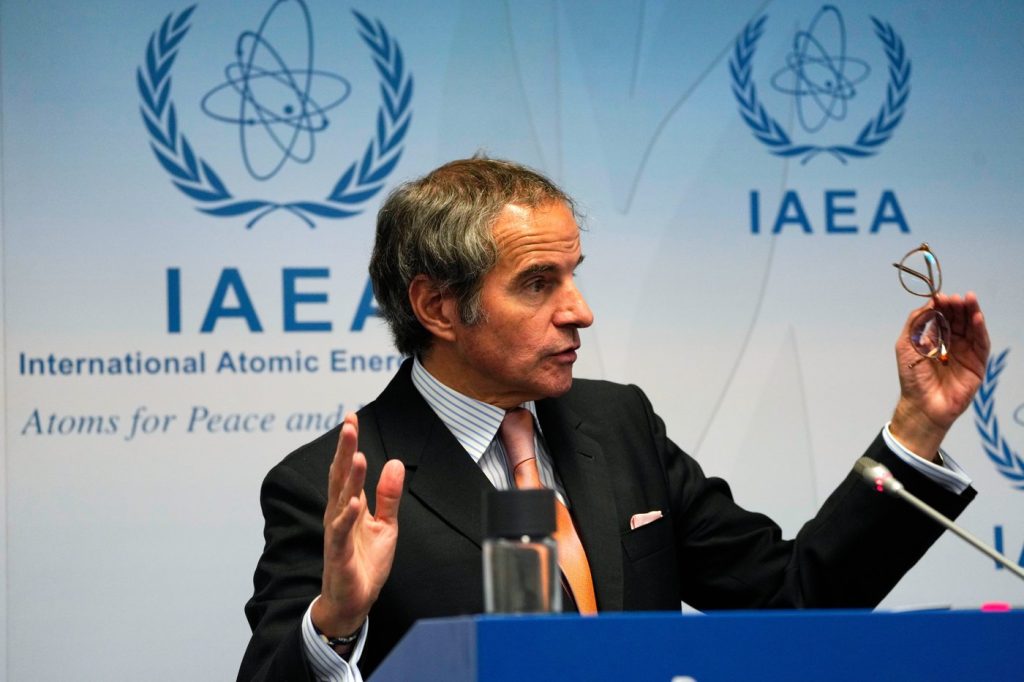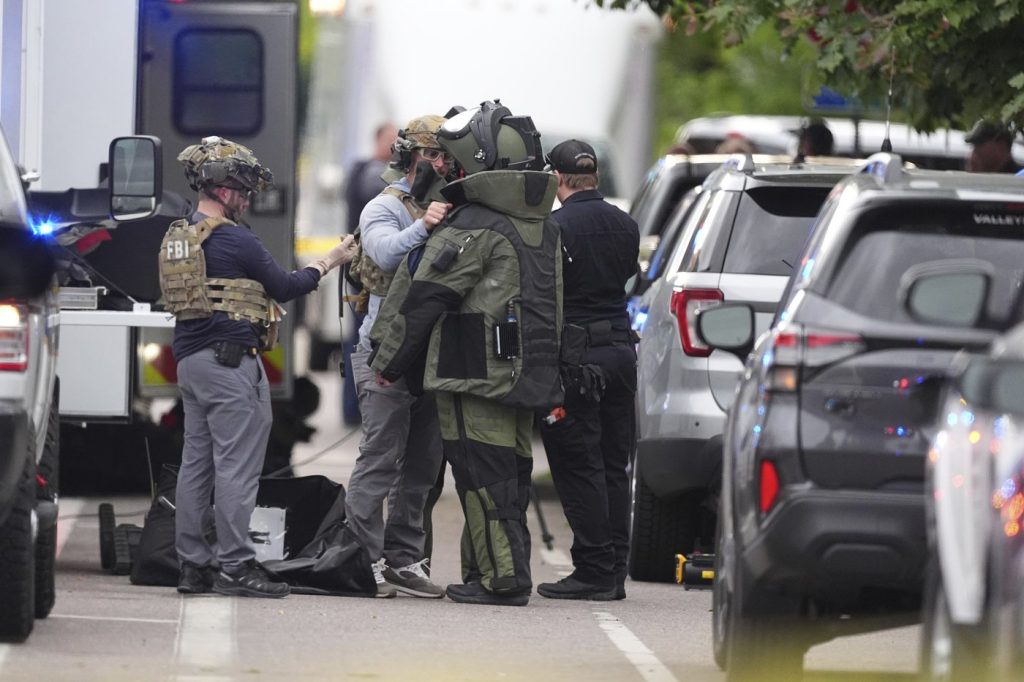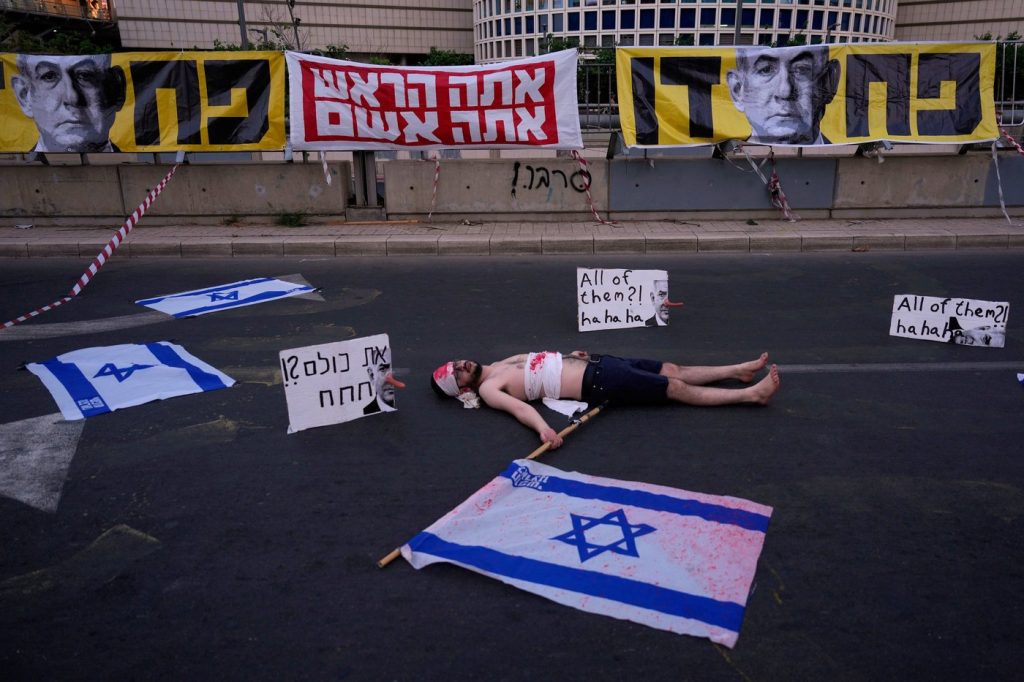VIENNA (AP) – A confidential report from the International Atomic Energy Agency (IAEA) revealed that Iran has notably increased its stockpile of uranium enriched to near weapons-grade levels. As of May 17, Iran has amassed 408.6 kilograms (900.8 pounds) of uranium enriched to 60%, which signifies an increase of 133.8 kilograms (294.9 pounds) or nearly 50% since the last report in February, where the stockpile was reported at 274.8 kilograms (605.8 pounds). Uranium enriched to 60% is just a technical step away from the weapons-grade threshold of 90%.
The IAEA issued a stern warning in its report, noting that Iran is now the only non-nuclear-weapon state producing such material, which raises serious concerns. Approximately 42 kilograms of uranium enriched to 60% could theoretically be enough to produce one atomic bomb if further enriched to 90%. The broader stockpile of enriched uranium, which includes lower enrichment levels, is now estimated at 9,247.6 kilograms (20,387.4 pounds), marking an increase of 953.2 kilograms (2,101.4 pounds) since February.
Iran maintains that its nuclear program is solely for peaceful purposes. However, Rafael Mariano Grossi, the IAEA chief, warned that the nation has enough enriched uranium that could allow it to produce multiple nuclear bombs if it so chooses. Despite this, U.S. intelligence agencies believe Iran has not embarked on an active weapons program but has taken steps that position it for future capabilities.
In response to the IAEA’s findings, Iran’s Foreign Ministry and the Atomic Energy Organization issued a statement condemning the report as biased and unprofessional, claiming it was based on unreliable sources. They expressed disappointment, arguing that the content was driven by political pressures and emphasized that Iran possesses the right to a peaceful nuclear program under international law. The Iranian officials reiterated that Supreme Leader Ayatollah Ali Khamenei had declared nuclear weapons would not be part of Iran’s defense strategy. They also criticized the IAEA for neglecting the impact of the U.S.'s withdrawal from the nuclear deal in 2018.
Omani Foreign Minister Badr al-Busaidi, mediating between the U.S. and Iran, was in Tehran to discuss the latest proposals aimed at limiting Iran's nuclear ambitions in exchange for easing U.S. economic sanctions. The recent round of talks derived from the complex and strained diplomatic relations between the involved parties, aimed at finding a resolution to the nuclear issue.
Israel reacted swiftly to the IAEA report, indicating that it serves as a clear signal of Iran's intent to advance its nuclear weapons program, asserting that Iran's nuclear activities lack any civilian justification. Israeli Prime Minister Benjamin Netanyahu's office called upon the international community to take immediate action against Iran’s escalating enrichment levels.
Grossi reiterated his urgent request for Iran's full cooperation with the IAEA regarding longstanding investigations into traces of uranium found at several undeclared sites. These investigations have heightened concerns about Iran’s potential engagement in a secret military nuclear program prior to 2003.
The IAEA’s assessments and findings could potentially lead to further actions by European nations, possibly triggering the reimplementation of sanctions that had been lifted under the 2015 nuclear deal. Senior Iranian officials have dismissed the idea of an imminent agreement, insisting that any negotiation would need to entail the full lifting of sanctions alongside uninterrupted development of their nuclear program.
As diplomatic maneuvers continue, the U.S. administration expressed its resolve to prevent Iran from acquiring a nuclear bomb, with White House press secretary Karoline Leavitt emphasizing that Iran must accept the proposals put forth by U.S. Special Envoy Witkoff. The ongoing dialogues illustrate the complexities of international diplomacy surrounding Iran's nuclear capabilities and the broader implications for global security.












